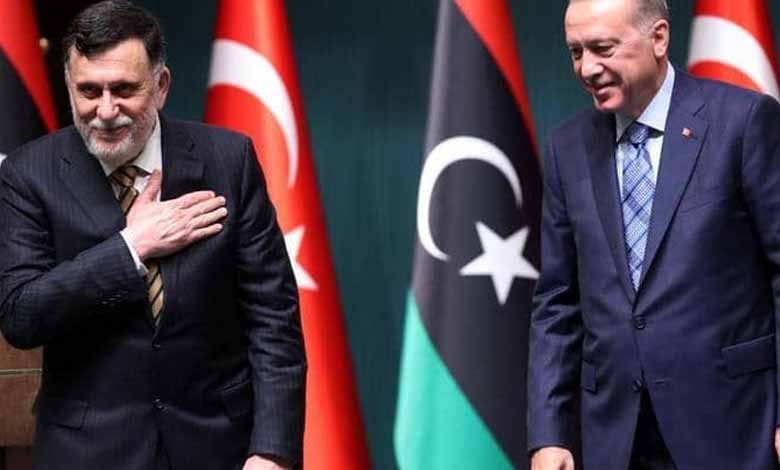Demands to cancel the Seraj-Erdogan agreements

An Egyptian human rights organization has called on the new Libyan government to cancel the agreement signed between the former Al-Wefaq government headed by Fayez al-Sarraj and Turkey.
In November 2019, Turkey announced the signing of a maritime delimitation agreement in the Mediterranean with the government of Fayez al-Sarraj, as well as an agreement on expanded security and military cooperation, under which Ankara sent about 20,000 Syrian mercenaries and 10,000 other extremists to Tripoli.
On the sidelines of the Human Rights Council’s 46th session, the Maat Foundation for Peace, Development and Human Rights issued a report on the future of the military agreement between the government of Alwefaq and Turkey.
The report issued by Maat said that after a new Libyan government took over the reins of power, and with the announcement of a readiness to cooperate with all parties, the issue of the legality and future of the military agreement will resurface.
The report pointed out that the Convention violates previous Security Council resolutions on Libya and violates the outcomes and recommendations of international conferences involving international actors in the Libyan file.
Ayman Aqeel, president of the Maat Foundation for Peace, Development and Human Rights, said that since the agreement was announced, it has stirred a wide controversy among international law scholars, as it is in direct disagreement with the Sakhirat Agreement, which is the framework for the work of the reconciliation government.
Aqeel called on the Libyan parliament, which recently gave their vote of confidence to the new government, to affirm their rejection of the continuation of the illegal agreement signed by Fayez Al-Sarraj, the former prime minister, alone with Ankara and without referring to the parliament, in violation of all legal and international norms.
Sharif Al-Rifai, a researcher at the Maat the African Affairs and Sustainable Development Unit, said the agreement was prepared in an illegal framework governed by Turkish interests, which makes its future continuity a matter of question, given the new prime minister’s announcement of a different approach.
Al-Rifai pointed out that the cancelation of the agreement will contribute to reducing the state of polarization that Libya has suffered for years. He also stressed that “compliance with the Security Council resolutions on Libya must be kept in the eyes of the next government.”
In an earlier report, Maat warned that the continued presence of mercenaries brought to Libya by Turkey threatens the demographic structure of society and turns it into a center of conflict.
The reconciliation government led by Al-Sarraj had been involved with Turkey in bringing mercenaries into Libya, and Ankara used those mercenaries politically, either to engage them in proxy battles or to bargain with them in the future of Libya.
The human rights report said that the mercenary dilemma is one of the biggest ones that has overshadowed the Libyan crisis in more than ten years. It is even one of the causes of the long-term conflict, especially with the presence of countries and internal parties that provide logistical support and political cover to terrorists.
Turkey controls a number of military, air and sea bases in the Libyan west, the most famous of which is the National Base. Although the deadline for the withdrawal of mercenaries from Libya has expired, Turkey is still recruiting mercenaries inside Syrian territory, in preparation for their transfer to Libya, the Syrian Observatory said.
Libya and the African States in general are the focus of the Maat Foundation for Peace, Development and Human Rights, as a member of the General Assembly of the Economic, Social and Cultural Council of the African Union, and as an observer of the African Commission on Human and Peoples Rights. The Coordinator of the North African Region is a major non-governmental organization in Africa.












